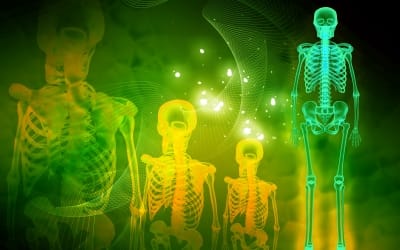Nuclear energy has become a part of our every day lives, but not solely for electricity production. Over the last century, nuclear technology has become increasingly important in health care. It all started with X-ray imaging, but was quickly followed by Single Photon Emission Tomography (SPECT) and later Positron Emission Tomography (PET). In addition to imaging, nuclear technology is also used for therapy in oncology, cardiology and neurology using radioiodine, proton therapy and hadron therapy. Every year about 35 million people worldwide, of whom 9 million people Europeans, benefit from medical examinations and treatments that use radioisotopes. In Europe, 1 in 2 people will undergo a procedure with radioisotopes in their lifetime. About 30.000 diagnostic procedures using radioisotopes are performed every day in Europe.
Production, diagnosis and therapy: it all happens in Belgium
Belgium houses an integrated value chain: from the production of the radionuclides, followed by radiopharmaceutical production, up to a network of health care centers for patients. These provide a full spectrum of services in diagnostics, imaging and therapy, including clinical research activities and all the associated expertise in physics as well as in medicine.
Belgium a world leader in the production of radiopharmaceuticals…
SCK • CEN (Dutch: Studiecentrum voor Kernenergie – French: Centre d’Étude de l’énergie Nucléaire – English: Study Centre for Nuclear Energy), located in Mol, operates the BR2 (Belgian Reactor 2) that produces radioisotopes for medical imaging and treatment of cancer. In cooperation with IRE (National Institute for Radioelements) they mainly produce 99Mo, which can be converted to 99Tc for medical examinations. The latter isotope is used 8 out of 10 times when radiopharmaceuticals are needed for imaging. The BR2 produces, on annual basis, up to a quarter of the worldwide demand for medical radioisotopes. In peak times, this can amount to 65%. It is one of the most efficient reactors on this planet. Furthermore, SCK • CEN is building a new reactor named MYRRHA (Multi-purpose hYbrid Research Reactor for High-tech Applications) that will even be more efficient.
The IRE meticulously monitors the production process, the impact on workers, local residents and the environment. No concessions to safety procedures are made. They guarantee radioisotopes of impeccable quality. In addition to to 99Mb, the IRE isolates and purifies some of the 300 vision products useful for nuclear medicine, such asI131. Only 4 companies in the world outside Russia, i.e. Canada, The Netherlands, South Africa and Australia, have similar activities.
… and protontherapy
In addition to the radiopharmacy activities, Belgium is home to the international leader for proton therapy, IBA. It is the global high-tech leader in the field of next generation proton therapy and state-of-the-art technologies for the treatment and diagnosis of cancer. IBA has treated more than 30.000 patients using proton therapy. This technology targets a tumor with a focused beam of protons that damage the DNA of malignant cells, which kills them or stops them from multiplying, without destroying healthy cells. Cancer cells are very prone to destruction with this technique because of their high division rate and reduced ability to repair DNA damage. Moreover, proton therapy reduces the risk of secondary cancer by a factor of 4. More than 20.000 patients are treated with IBA proton therapy and hadron therapy (particle therapy using protons, neutrons or positive ions) every year.
Rad4Med.be is The Belgian Network for Radiation Applications in Healthcare. This organization aims to promote the Belgian integrated value chain worldwide and wants to create awareness that all healthcare-related radioactivity issues can be addressed within Belgium.
Image courtesy of renjith krishnan at FreeDigitalPhotos.net


